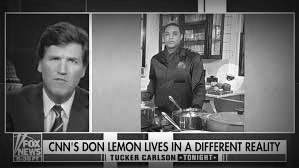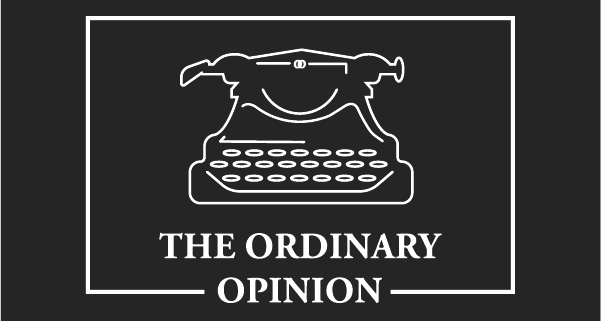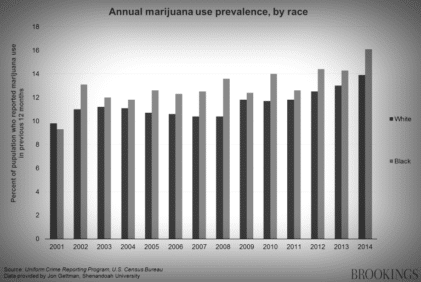The main storylines around Sha ‘Carri Richardson are unfortunate. I’m sad for her, hope for her restoration, and have MANY thoughts on her matter… but these internets are saturated with thoughts on her matter already, so I’ll save you the additional take.
To be honest, the controversy shouldn’t be that interesting, because it shouldn’t be controversial that two different statements – with two different outcomes – can be true at the same time. These two, for instance:
- “In a country where 22 states have legalized marijuana use, and in which an athlete used marijuana in one of those 22 states, and in which there is no proof that marijuana is performance enhancing, and in which the history of prohibition around marijuana has historically racist underpinnings, the USADA and IOC’s rule against the use of weed should be revoked or revisited”
- “The IOC’s rule against the use of weed has not been revoked or revisited. World class athletes are aware of this rule and – should they break it – are subject to whatever penalties or fines are attendant to their actions, especially when it is not in anyone’s power (or interest) to simply waive penalties after the fact.”
What *should* be interesting is how popular the view is that the rules barring Sha’ Carri from the Olympics are “anti-black.” The news about her suspension hit my timeline only a few moments before a flood of opinion declaring the inherent racism of the WADA/IOC rule, and decrying the depths the world continues to plumb to hold black people back.
There are lots of reasons to disagree, but mostly I start with wrestling the implication of the idea that this suspension and this rule is anti-black.
To me, to state that the targeting of marijuana use is tantamount to targeting black people is to imply that weed use is somehow intrinsically black. It’s not – at least not for me. If there was a meeting where our community decided this, I apologize for missing it, and humbly request a revote.
Nuance is important here.
It is fact that the history of marijuana criminalization (beginning in the 1930s) is racist, intended to marginalize Mexican immigrants. It is also fully fact that Black communities have paid the heaviest intended price in the War on Drugs.
But the fact that the world’s unjust justice systems disproportionately punish people of color for a given activity should not force people of color to claim that activity as their cross to carry.
Police in the United States are more likely to bring violence to a traffic stop against people of color than against whites. That doesn’t make legislation against broken tail-lights anti-black. Broken taillights (or any of the other reasons we’re pulled over, including…just driving…) aren’t intrinsically black.
I fear that in the rush to champion Sha ‘Carri’s cause (or maybe out of fear of not being taken seriously enough otherwise) the loudest voices on the internet have jumped to declaring a false association. We should reject this.
Rationally, one or both of at least two things need to be true to substantiate a claim that a course of action is “anti-black”:
- The course of action needs to target activity or characteristics that are disproportionately present in or exhibited by black people
- The course of action needs to be demonstrably more disadvantageous or punitive than the analogous course of action targeted at non-black people
i.e., for this USADA/WADA/IOC rule to be anti-black would require that the prevalence of weed use be higher for black athletes than for white ones, and/or that the system to identify and punish weed use identifies and punishes black athletes at a higher rate than white athletes.
The facts don’t bear either of those out. Across the general population (and it’d stand to reason, among athletes), prevalence of weed use is fairly even across black and white populations in the US, based on studies at the NIH, and separately by Brookings. In fact, for much of the start of this century, it was higher among white people.
Punishment for violations of these (and similar) rules have also been consistent: the list of athletes suspended by the USADA for this violation in the past is gloriously diverse, per records published at the USADA site.
Michael Phelps – among the winningest Olympians of all time – was suspended for three months. In the off-season. Because of a video of him smoking. He was also suspended six months for a DUI. Were we somehow expecting more leniency for a relative newcomer with a failed drug test a month before the Olympics?
–
Why does this matter? Two things.
My primary concern here is the weaponization of association in a way that builds stereotypes used to fuel racism and racist attitudes. It is literally how marijuana criminalization happened in the first place.
While use of weed, heroin, cocaine, and other drugs was common across the general population, associating marijuana use with Mexican immigrants – then stoking fear of said immigrants – made criminalization of weed an easy way to arrest, harass, or remove Mexicans from the United States.
The use of false association to create stereotypes can be harmful, whether it’s by racists associating weed with Mexicans to drive their marginalization at a time of high unemployment, or by bullies in middle-school hallways associating good speech with “talking white,” an association that alludes to racial betrayal and discourages intellectualism and self-expression in young black people.

This baseless tying of people to specific behaviors or experiences by race isn’t entirely divorced from one of Tucker Carlson’s favorite white supremacist plays:
When Mr. Carlson says Don Lemon doesn’t know what it’s like to be a “real black person” because he lives in a multi-million dollar home, he’s:
- Suggesting that wealth is incongruous with authentic blackness
- Perpetuating the false association between “authentic” blackness and poverty.
- Doing it on Fox News, feeding his congregation of fascists the fuel needed to justify their view of black people as less-than in the same way the Welfare Queen trope did (despite facts on recipient demographics that would disagree)
There are millions of authentic black people in poverty. There are millions of authentic black people who are well off. Preaching that only the first is true is a trap, and a weapon.
Second: not accurately naming and defining a problem makes it harder to solve. I get nowhere fast if I show up to a mountain climb in basketball shoes.
If the IOC and WADA are accused of being anti-black, they will battle that accusation, and that accusation alone.
They will point to the dozens of black athletes that year after year serve as the faces of global athletics with their consent: WADA hasn’t stood in the way of Usain Bolt or Shelly-Ann Fraser-Pryce or Tyson Gay or Justin Gatlin or Allyson Felix or dozens of others.
The USADA will ask why the black community insists that Richardson – who broke a rule – be championed with airtime that could arguably go to black athletes like Sydney McLaughlin (who just set a 400M hurdle record) or the intriguing struggle between Jessica Ramsey and Raven Saunders (who broke the meet record with a full bottom gold grill in).
Instead of defending poorly structured accusations, they should be revisiting their stupid rule, which punishes black and white athletes alike, and sits on the heritage of a racist narrative around the effects of marijuana use.
–
No one should have to claim targeted victimization to see to it that mindless regulations are revoked; least of all black people, who already bear the weight of the tribulations of merely existing in America in 2021. Weed is not a hill I want to die on.
I feel for Sha’ Carri. But while we advocate for her, I suggest we do so without elevating this to an attack on the black community. It’s not. Sometimes things just suck.




